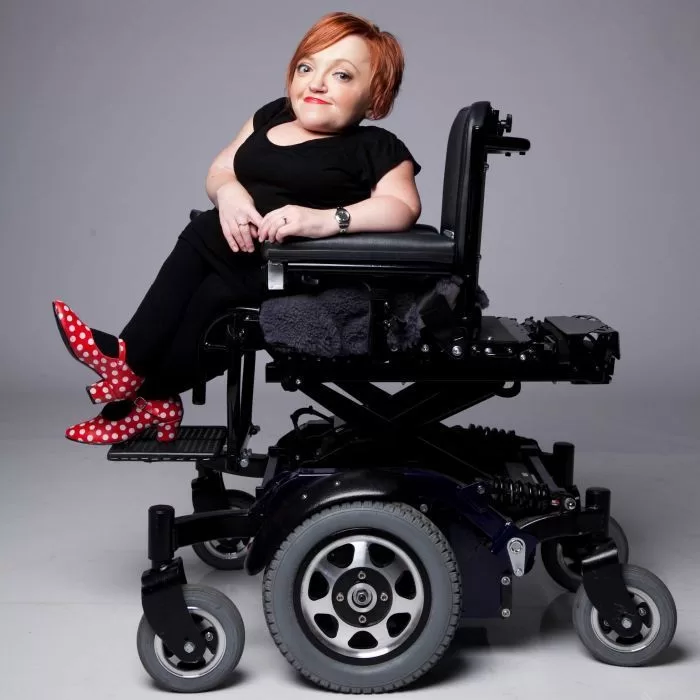Updated on August 24, 2025

What Is Occupational Therapy?
Occupational Therapy (OT) is a person-centred health profession that helps people with disabilities to participate fully in everyday activities. At Centre Disability Support, we recognise the role that OT plays in enhancing independence, improving quality of life, and enabling people to achieve their personal goals.
In Australia, Occupational Therapy is also a key component of NDIS, helping participants access the support they need.
Occupational Therapy is more than just a form of rehabilitation—it’s a comprehensive approach that helps people to engage in meaningful occupations, whether that means self-care, work, leisure, or community activities. Unlike physical therapy, which often emphasises physical recovery, OT takes into account the psychological, social, and environmental factors that influence a person’s daily life.
Who Can Benefit from Occupational Therapy?
- People with physical disabilities – assisting with mobility and self-care tasks.
- People with intellectual or developmental disabilities – helping to improve skills and independence.
- Children with autism, ADHD, or sensory processing difficulties – enabling participation in school and play.
- Older adults – addressing issues like mobility decline or cognitive challenges.
- People recovering from injury or illness – facilitating a smoother transition back to daily activities.
What Does an Occupational Therapist Do?
An occupational therapist works closely with clients to assess their needs and devise personalised strategies.
Key parts of an OT’s work include:
- Comprehensive Assessments: Evaluating the client’s home, work, and social environments alongside their strengths and challenges.
- Personalized Intervention Plans: These are plans that may include routines, skill-building exercises, and environmental modifications.
- Recommending Assistive Equipment: like specialised utensils, adaptive devices, or home modifications, to improve independence.
- Skill Training: Teaching daily living skills, such as dressing, cooking, and time management.
- Goal Setting: Collaborating with clients to set achievable targets that promote participation and community engagement.
Key Areas of Focus in Occupational Therapy
1. Daily Living Skills
Occupational Therapists help people master everyday tasks such as bathing, dressing, meal preparation, and managing personal finances. By focusing on these basic skills, people can maintain independence in their own homes.
2. Home and Environment Modifications
For many, adapting the living environment is essential. Therapists assess homes for potential hazards or obstacles and recommend modifications like installing handrails, ramps, or specialised furniture that ensure safety and accessibility.
3. Sensory Processing Support
Many children and adults with autism or sensory processing issues benefit from OT. Therapists provide strategies to help them manage sensory overload or under-responsiveness, ultimately leading to improved social and educational lives.
4. Emotional and Mental Health Regulation
Occupational Therapy extends to supporting mental well-being by developing strategies to manage stress, anxiety, and other emotional challenges. Clients learn to build routines that promote mental stability and emotional regulation.
5. School and Workplace Participation
OT supports learners and workers by adapting environments to their needs. This might include modifying classroom layouts or workstations, as well as teaching coping strategies that assist with concentration, organisation, and communication.
Occupational Therapy and the NDIS
OT falls under the Capacity Building category, specifically designed to improve daily living skills and build independence. At Centre Disability Support, we work closely with NDIS participants, support coordinators, and plan managers to ensure that clients can access the OT services they need. Including OT in an NDIS plan often means discussing strategies and outcomes during planning meetings, ensuring that therapy goals align with each client’s expectations.
How Centre Disability Support Helps
Our Comprehensive Support Coordination Services help by:
● Assisting you in understanding your plan and the supports available.
● Connecting you with essential services and supports tailored to your needs.
● Coordinating with Allied Health Professionals for holistic care.
● Facilitating seamless interactions with NDIS.
● Assisting with Plan Reviews to ensure they align with your needs.
● Being there for you when challenges arise, ensuring a smooth resolution.
Frequently Asked Questions about OT
Is occupational therapy the same as physiotherapy?
No, occupational therapy is not the same as physiotherapy. While physiotherapy focuses on restoring physical movement and function, occupational therapy helps people perform daily activities and improve their overall quality of life.
Does occupational therapy help with ADHD?
Yes, occupational therapy can help with ADHD. OT interventions for ADHD often focus on improving organisational skills, time management, and sensory processing, which can reduce distractibility and improve concentration.
What does an OT do for autism?
For individuals with autism, an OT develops strategies to enhance sensory processing, communication, and social interaction. They work on building routines and adaptive skills that can ease transitions and reduce anxiety.
How do I know if my child needs occupational therapy?
You might consider occupational therapy if your child struggles with daily tasks, sensory processing, or social interactions. Signs can include difficulty with self-care activities, challenges in school settings, or behaviours that interfere with learning and play. Consulting with a professional can provide a clear assessment and determine if OT is the right support.
What is the role of occupational therapy in rehabilitation?
In rehabilitation, occupational therapy plays a crucial role by helping people regain independence and adapt to changes in their abilities. OTs develop strategies and modifications to help clients perform daily tasks, even after injury or illness. The approach not only focuses on physical recovery but also addresses cognitive, emotional, and environmental factors.
Conclusion
Occupational Therapy is a transformative service that builds independence, enhances quality of life, and improves community participation. Whether you are a person with a disability or a family member seeking support, OT can make a real difference. If you’re interested in learning how Occupational Therapy can benefit you or your loved one, contact us today for a personalised consultation.
RELATED
How To Get Your Dog To Be A Therapy Dog
Supported Independent Living Vacancies
What is Personal Support for People with Disabilities?



